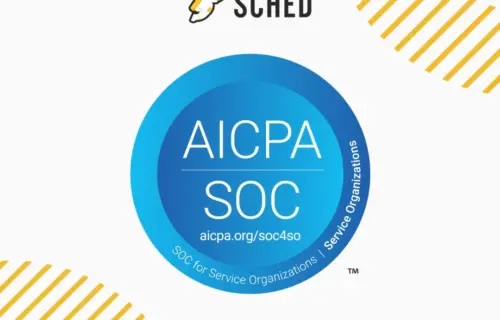Event marketing is a powerful tool for promoting brands, products, or services through organized events that connect businesses with their audience.
These events can vary from in-person gatherings to virtual experiences, providing diverse opportunities for engagement.
By leveraging strategic event marketing, companies can enhance their brand visibility and drive success through meaningful interactions.
In this article, readers will explore effective strategies for marketing events, key benefits, and practical tips for maximizing attendance and engagement.
TL;DR
Table of contents
- 1 TL;DR
- 2 What Is Event Marketing?
- 3 The Importance Of Event Marketing
- 4 5 Benefits Of Event Marketing And Management
- 5 8 Types Of Event Marketing
- 6 5 Best Event Marketing Strategies For 2025
- 7 5 Steps Of The Process Of Event Marketing
- 8 6 Event Marketing Ideas And Trends For The Future
- 9 Key Takeaways From This Event Marketing Guide
- 10 FAQs
- 10.1 How Effective Is Event Marketing?
- 10.2 Why Are Companies Using Event Marketing?
- 10.3 What Are The 4 C’s Of Event Marketing?
- 10.4 What Are The 4 Ps Of Event Marketing?
- 10.5 How Much Should You Spend On Event Marketing?
- 10.6 What Does An Event Marketer Do?
- 10.7 What Is The Difference Between Event Marketing And Promotion?
- 10.8 How To Prepare A Successful Event Sales Strategy?
- 10.9 What Is The ROI Of A Successful Event Marketing Program?
What Is Event Marketing?
Event marketing is a strategic approach that utilizes events to promote a company, product, or service. It often involves direct engagement, aiming to connect brands with audiences through interactive experiences.
Event Marketing Definition
Event Marketing is defined as the process of planning, organizing, and executing a promotional activity with the purpose of increasing brand visibility and customer engagement.
These events can be held online or offline and often involve live interactions to create memorable brand experiences.
Companies can act as hosts, co-hosts, participants, or sponsors in events such as trade shows, seminars, webinars, and exhibitions.
The method focuses on strengthening relationships and building brand affinity through face-to-face or virtual engagement.
The Importance Of Event Marketing
Event marketing plays a key role in connecting brands with their audiences. By engaging with potential customers directly, companies can establish meaningful relationships.
These interactions offer invaluable insights into customer preferences, which help tailor future marketing strategies.
Generating leads is another significant aspect. Events provide opportunities to target multiple audience segments in one place. This approach enhances brand visibility and drives engagement.
Creating brand impressions is crucial. Developing an event-specific hashtag increases social media presence. Attendees sharing their experiences online can widen potential audience reach.
Event marketing contributes to brand exposure beyond traditional advertising. Hosting or participating in events elevates a brand’s profile, fostering trust and credibility among consumers.
It demonstrates commitment and investment in customer relationships.
Companies often introduce new products or services at events. This strategy captures immediate feedback and builds excitement. Showcasing offerings in person adds a tangible dimension to marketing efforts.
5 Benefits Of Event Marketing And Management
1. Increased Brand Awareness
Events provide a platform to enhance the visibility of a brand, product, or service. Through strategic planning and execution, brands can reach a wider audience and create lasting impressions.
2. Lead Generation
Events offer direct access to potential decision-makers and influencers.
By interacting with these individuals, businesses can generate high-quality leads, often resulting in more effective sales conversions.
3. Engagement and Interaction
Hosting or participating in events encourages face-to-face interactions.
This personal connection fosters stronger relationships with clients and stakeholders, which digital marketing efforts alone cannot replicate.
4. Feedback and Insights
Events provide opportunities to gather real-time feedback from attendees. Feedback is invaluable for refining products or services and enhancing customer satisfaction.
5. Networking Opportunities
By engaging in event marketing and management, companies can build and strengthen relationships within their industry.
Networking with peers and competitors can lead to collaborations, partnerships, and sharing of innovative ideas.
8 Types Of Event Marketing
1. Conferences
Conferences are large-scale events focused on a specific industry or sector. They offer networking opportunities, keynote sessions, and panels. Businesses use conferences to exhibit their expertise and connect with potential clients.
2. Trade Shows
Trade shows bring together companies from a specific industry to showcase their products and services. These events are ideal for product launches and generating leads.
3. Seminars
Seminars are educational events focusing on a specific topic. They are typically shorter than conferences and include presentations, workshops, and discussions.
4. Workshops
These are hands-on training events where participants engage directly with products or services. Workshops are effective for skill development and offering practical insights.
5. Webinars
Webinars are online seminars or presentations. Webinars provide a cost-effective way for companies to reach a global audience and interact with attendees in real-time.
6. Product Launches
These events are designed to introduce a new product to the market. Product launches generate buzz and excitement, offering demos or experiences of the product.
7. Networking Events
These events prioritize relationship-building. They give attendees the chance to interact with potential partners, clients, or industry peers.
8. Virtual Events
In the digital age, virtual events have gained traction. Virtual events leverage technology to facilitate web-based interactions, making events accessible worldwide, without geographic limitations.
5 Best Event Marketing Strategies For 2025
1. Leverage Virtual Reality (VR)
Incorporate VR to create immersive experiences that captivate attendees.
This powerful tool allows potential participants to engage with content remotely, expanding reach and enhancing interaction.
2. Personalization Through Data
Utilize data-driven marketing strategies to personalize communications.
Tailor messages based on attendees’ preferences and behaviors, ensuring content is relevant and engaging.
3. Use Integrated Platforms
Employ integrated event management software to streamline operations.
This technology automates tasks like registration and promotion, enabling marketers to focus on creative aspects.
4. Engage on Social Media
Maximize social media platforms for event promotion and interaction.
Encourage user-generated content and live updates to boost engagement and create a community around the event.
5. Focus on Sustainability
Incorporate sustainable practices into event planning.
Highlighting green initiatives can attract environmentally conscious attendees and positively impact brand reputation.
5 Steps Of The Process Of Event Marketing
1. Define Objectives
Start by identifying clear goals for the event, such as increasing brand awareness or generating leads.
These objectives will guide the event marketing strategy and help measure success.
2. Identify the Target Audience
Understanding the audience is crucial.
Research demographics, preferences, and behaviors to tailor the event experience and marketing content effectively.
3. Planning and Budgeting
Create a detailed plan that outlines the event logistics, timeline, and budget.
Include venue selection, technology needs, and promotional strategies. Effective budgeting ensures resources are allocated wisely.
4. Promote the Event
Utilize various channels like social media, email marketing, and partnerships to reach the target audience.
Craft compelling messages and visuals that resonate with them. Early promotion builds anticipation and improves attendance.
5. Measure Success and Follow Up
Post-event analysis is essential.
Evaluate metrics such as attendance, engagement, and feedback to assess the event’s impact. Share this data with stakeholders and use it to improve future event marketing campaigns.
6 Event Marketing Ideas And Trends For The Future
1. Hybrid Events
These blend in-person and virtual experiences, offering flexibility and increased accessibility. Attendees can join from anywhere, boosting participation rates.
2. Experiential Marketing
Face-to-face gatherings create memorable connections. These events focus on engaging all the senses, fostering emotional ties with the audience.
3. Gamification
Incorporating game elements in events enhances engagement. This trend turns passive participants into active players, making the event more interactive and enjoyable.
4. Data-Driven Personalization
Leveraging data allows marketers to tailor experiences to individual preferences. Customizing content and activities maximizes attendee satisfaction.
5. Sustainable Practices
Eco-friendly initiatives, such as reducing waste and opting for green venues, resonate with today’s environmentally-conscious consumers.
6. Event Technology
Investing in advanced tech improves efficiency and interaction. Tools like mobile apps and virtual reality enrich the event experience for attendees.
Key Takeaways From This Event Marketing Guide
FAQs
How Effective Is Event Marketing?
Event marketing effectively builds brand awareness and engagement. When executed well, it results in high participation rates and deeper connections with the audience.
The personal interaction at events facilitates direct communication, making messages more memorable.
Additionally, events enhance brand visibility and create a buzz that conventional marketing efforts might not achieve.
By using unique experiences, companies tap into attendees’ emotions, leading to lasting impressions.
Measurable outcomes, such as increased sales and return attendance, underscore its effectiveness.
Why Are Companies Using Event Marketing?
Companies use event marketing to foster personal connections with their audience.
Events allow for real-time interactions, feedback, and engagement that can be difficult to achieve via digital means.
Organizations can showcase their products and services in a hands-on environment.
These interactions aid in building trust and loyalty between the brand and its consumers.
Such direct engagement also opens opportunities for immediate feedback and insights into consumer preferences.
What Are The 4 C’s Of Event Marketing?
Consumer Needs: Addressing what the target audience desires from the event.
Convenience: Ensuring ease of attendance and accessibility to event information.
Cost to the Attendee: Understanding and balancing the perceived value and pricing.
Communication: Maintaining open, effective channels for event-related information.
The 4 C’s align the marketing efforts with the audience’s expectations, improving satisfaction and overall outcomes. Each aspect contributes to maximizing participant engagement and event success.
What Are The 4 Ps Of Event Marketing?
Product: The event itself, which can be a service or experience offered.
Price: The cost for attendees, which affects willingness to participate.
Place: The venue where the event occurs, impacting accessibility and appeal.
Promotion: Advertising activities aimed at attracting attendees.
Balancing these elements ensures an effective strategy that resonates with potential participants.
Proper alignment with the audience’s preferences encourages greater turnout and enhances the event’s overall success.
How Much Should You Spend On Event Marketing?
Spending on event marketing should align with the event’s goals and expected return.
Budget allocation typically ranges from 20% to 40% of the total event cost.
This ensures adequate investment in promotion, audience engagement, and experiential elements.
Decision-makers should consider factors such as the target audience, event scale, and desired outcomes.
Strategic investment in marketing efforts can maximize reach and participant engagement, contributing to the event’s overall success.
What Does An Event Marketer Do?
An event marketer is responsible for planning, executing, and promoting events.
They strategize on reaching the target audience and managing all promotional activities.
Building partnerships and ensuring brand consistency throughout the event are key functions.
They also analyze event performance to inform future marketing efforts.
By utilizing feedback and performance metrics, event marketers continuously refine strategies, improving future events’ effectiveness.
What Is The Difference Between Event Marketing And Promotion?
Event marketing encompasses the overall strategy behind planning, organizing, and promoting events to achieve specific goals.
It involves all pre-event, during-event, and post-event activities.
Promotion is a subset of marketing focused specifically on informing, persuading, and encouraging audience participation.
While marketing sets the strategy, promotion executes activities designed to communicate effectively and draw interest.
How To Prepare A Successful Event Sales Strategy?
A successful event sales strategy begins with clear objectives and understanding the target audience.
This involves segmenting the audience based on needs and preferences.
The strategy should include tailored messaging and value propositions.
Utilizing data-driven insights and setting measurable goals help in refining the approach.
Incorporating feedback and adjusting tactics enhance sales outcomes and increase overall event success.
What Is The ROI Of A Successful Event Marketing Program?
The return on investment for event marketing is measured by analyzing tangible and intangible benefits against costs.
Key performance indicators include attendee engagement, brand awareness, sales conversions, and post-event feedback.
A successful program often results in increased brand loyalty, new customer acquisition, and enhanced market positioning.
Calculating ROI provides insights into the event’s impact and informs future strategic decisions.









